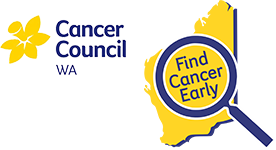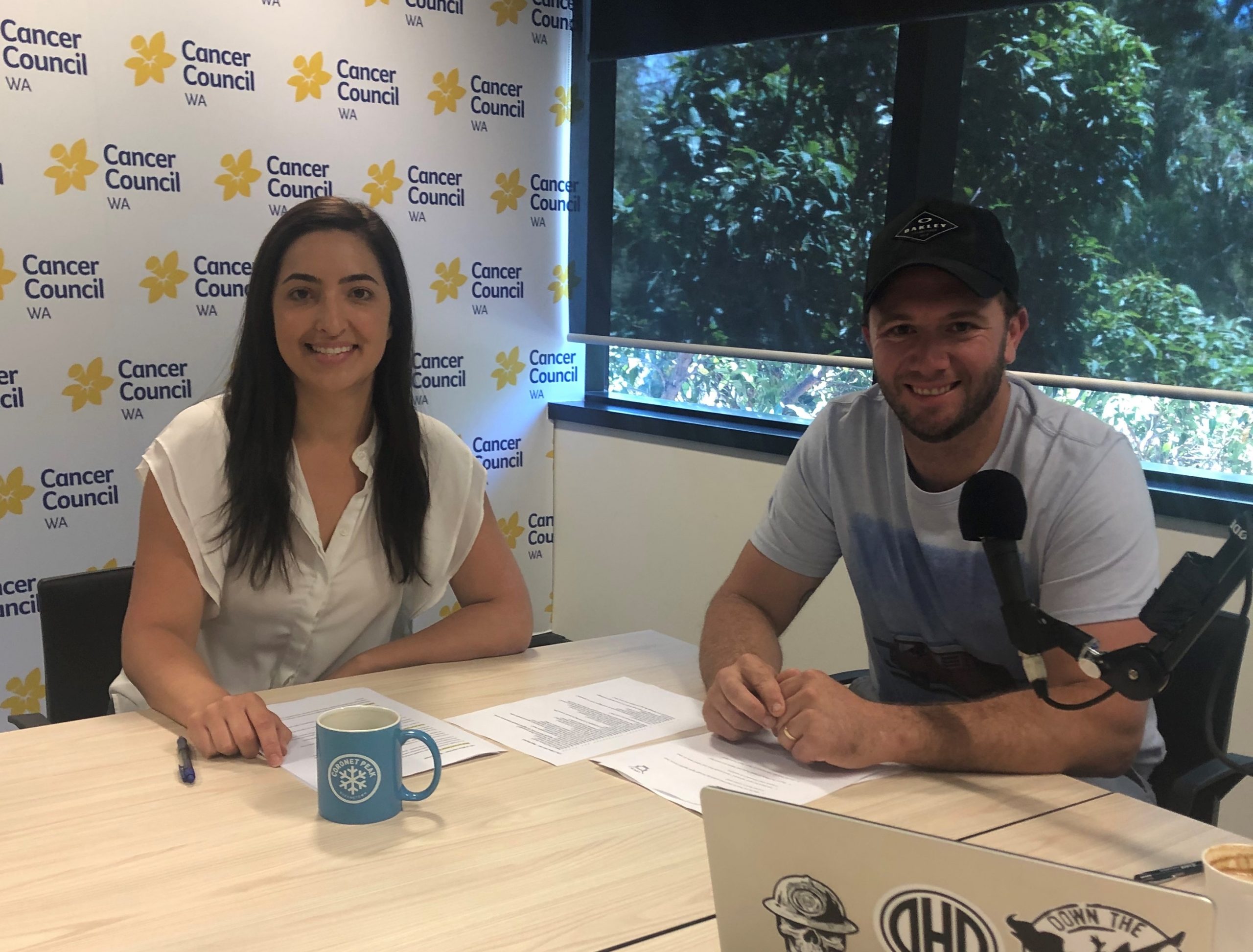Find Cancer Early resources for Regional Western Australians
This section contains resources for all regional Western Australians including Aboriginal people.
![]()
Life of Mine Podcast interview
Check out Regional Education Coordinator Hannah Cauchi’s interview with Matt Michael on the Life of Mine podcast for underground miners by clicking on the photo below.
Hannah and Matt discuss the Find Cancer Early program for regional Western Australians, when to participate in cancer screening, reducing your exposure to occupational carcinogens and general healthy lifestyle information. The stories and advice of valued regional WA cancer survivors and patients, known as Find Cancer Early champions, are weaved throughout the interview to motivate the audience to take the symptom information on board.
Cancer education video
Resources for Regional Western Australians
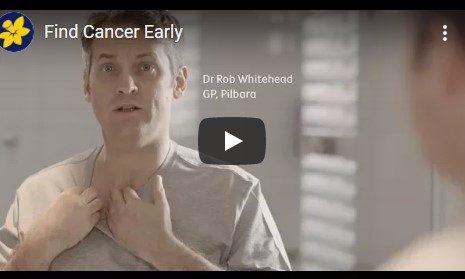
A message from regional WA GPs
Take 45 seconds to listen to regional GPs covering some of the early cancer symptoms you should be aware of.
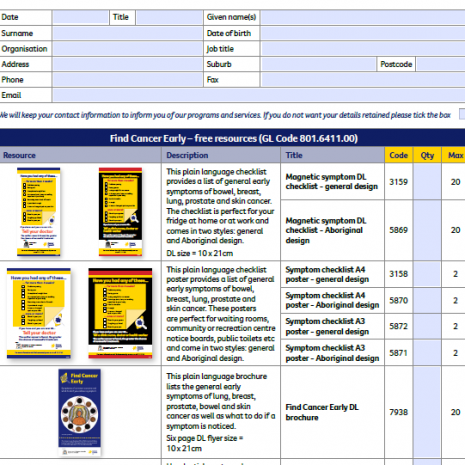
Resource order form - WA orders
Order FREE Find Cancer Early checklists and other resources for your home, work or your local health or community centre. Simply download the PDF, complete the form and return to Cancer Council Western Australia via the email or postal address listed at the top of the form. This form is for Western Australian orders only.
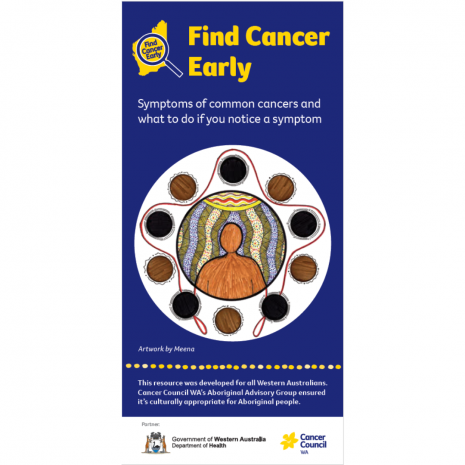
Find Cancer Early Brochure
This brochure lists the symptoms of common cancers affecting Western Australians: lung, breast, prostate, bowel and skin and what to do if you notice a symptom. This is a six page DL Flyer.
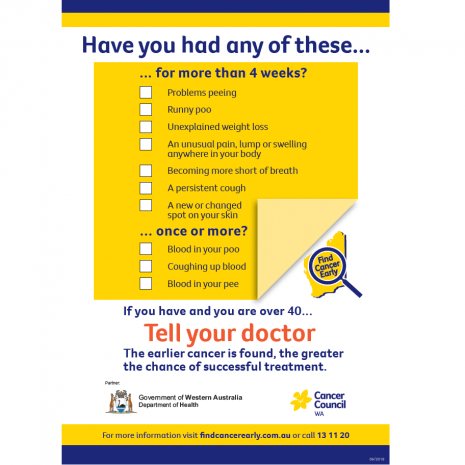
Find Cancer Early Checklist A4 - General Design
This checklist contains general early symptoms of the five most common cancers affecting Western Australians: prostate, breast, skin (including melanoma), bowel and lung cancer. This poster is A4 size.

Find Cancer Early Checklist A3 - General Design
This checklist contains general early symptoms of the five most common cancers affecting Western Australians: prostate, breast, skin (including melanoma), bowel and lung cancer. This poster is A3 size.
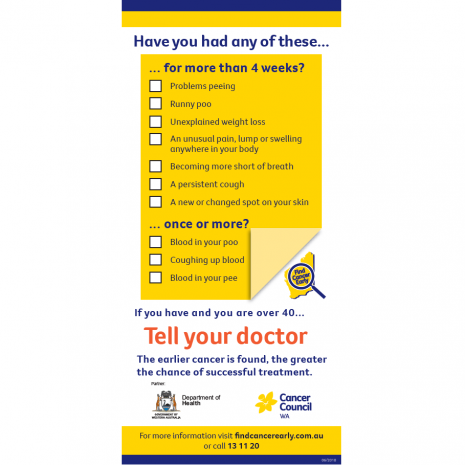
Find Cancer Early Checklist Flyer - General Design
This checklist contains general early symptoms of the five most common cancers affecting Western Australians: prostate, breast, skin (including melanoma), bowel and lung cancer. This flyer is DL size (1/3 of A4 size).
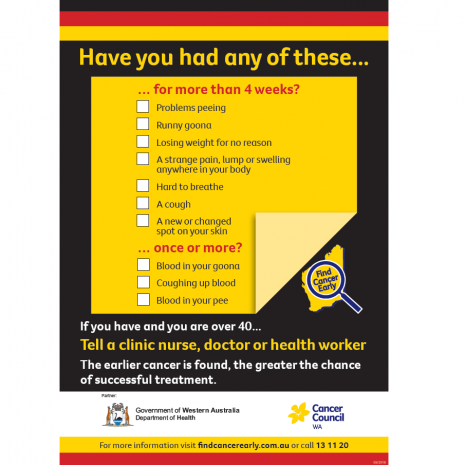
Find Cancer Early Checklist A4 - Aboriginal Design
This checklist contains general early symptoms of the five most common cancers affecting Western Australians: prostate, breast, skin (including melanoma), bowel and lung cancer. This poster is A4 size.

Find Cancer Early Checklist A3 - Aboriginal Design
This checklist contains general early symptoms of the five most common cancers affecting Western Australians: prostate, breast, skin (including melanoma), bowel and lung cancer. This poster is A3 size.
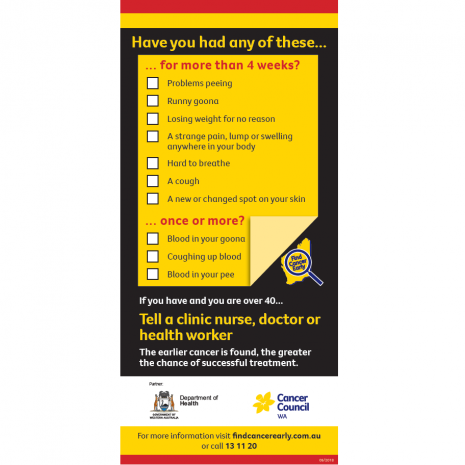
Find Cancer Early Checklist Flyer - Aboriginal Design
This checklist contains general early symptoms of the five most common cancers affecting Western Australians: prostate, breast, skin (including melanoma), bowel and lung cancer. This flyer is DL size (1/3 of A4 size).
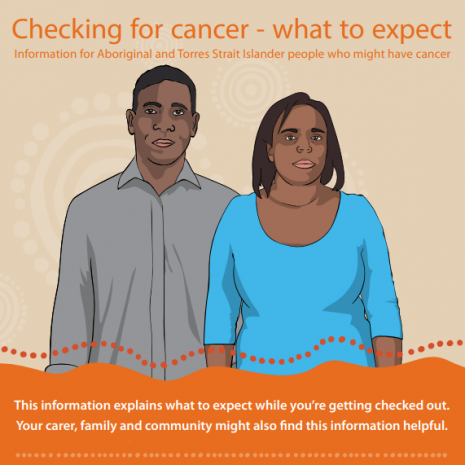
Checking For Cancer - What to Expect
Information for Aboriginal and Torres Strait Islander people who might have cancer. This information explains what to expect while you're getting checked out. Your carer, family and community might also find this information helpful.
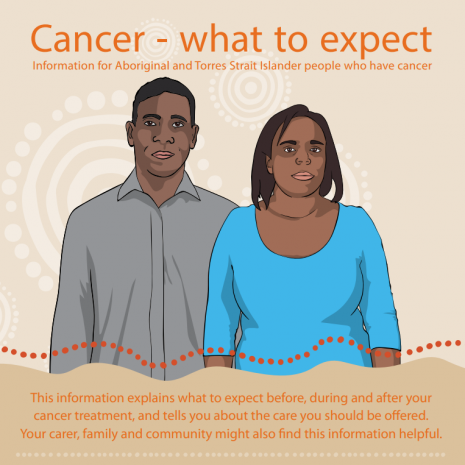
Cancer - What to Expect
Information for Aboriginal and Torres Strait Islander people who have cancer. This information explains what to expect before, during and after your cancer treatment, and tells you about the care you should be offered. Your carer, family and community might also find this information useful.
